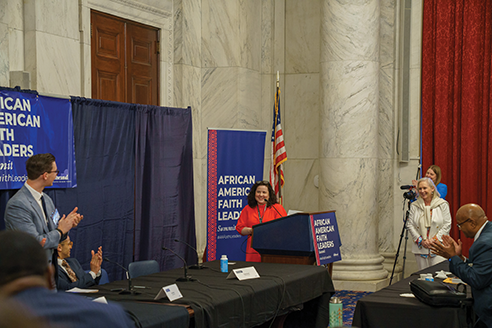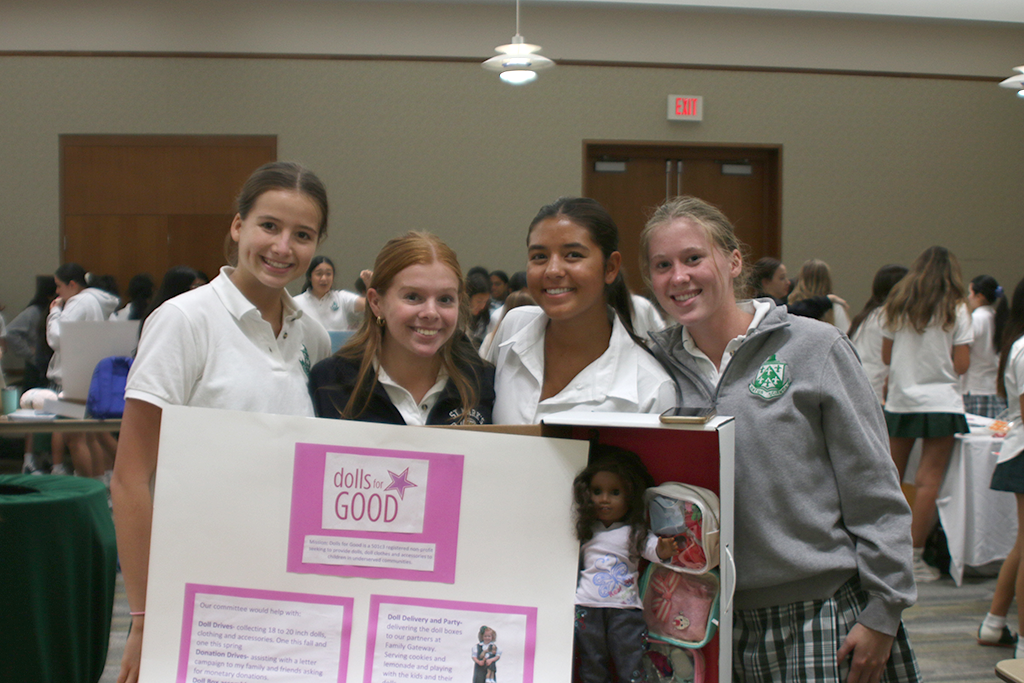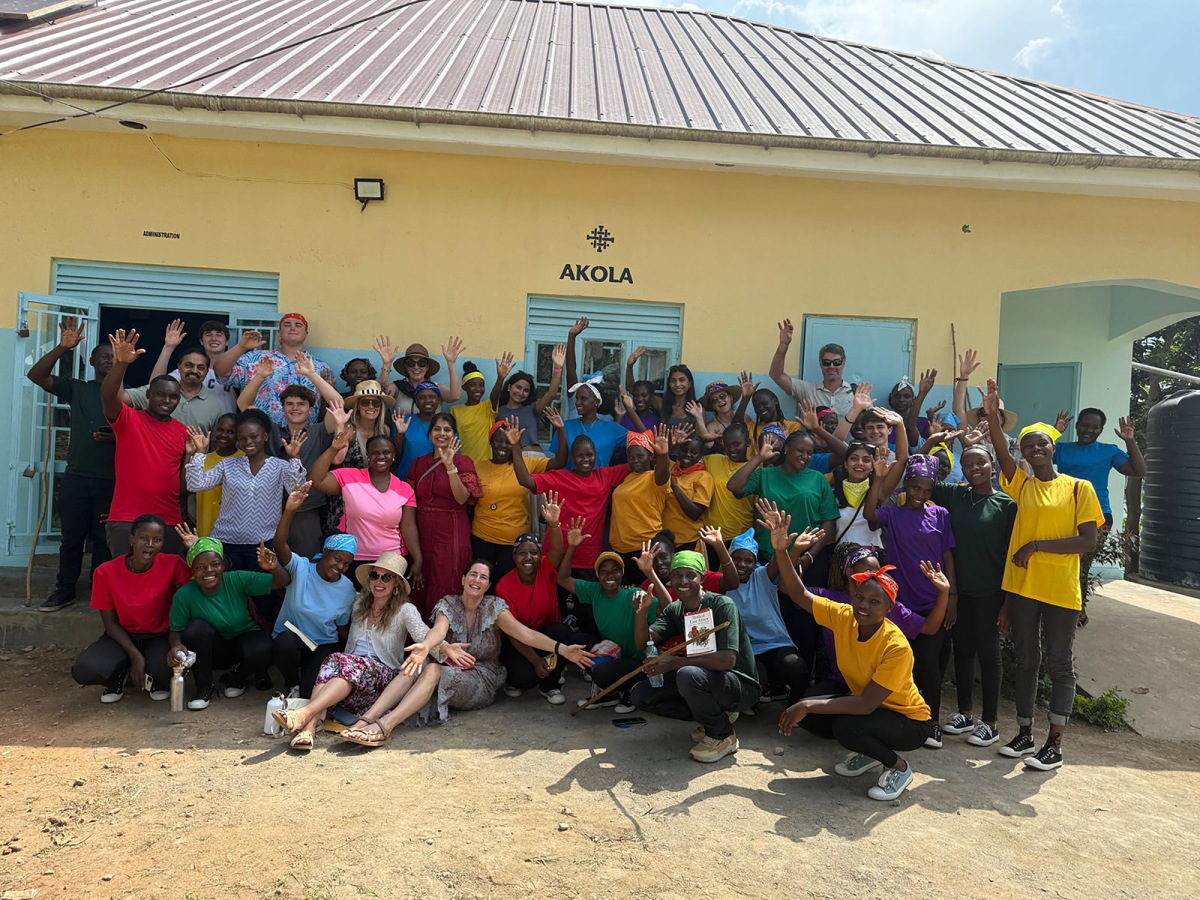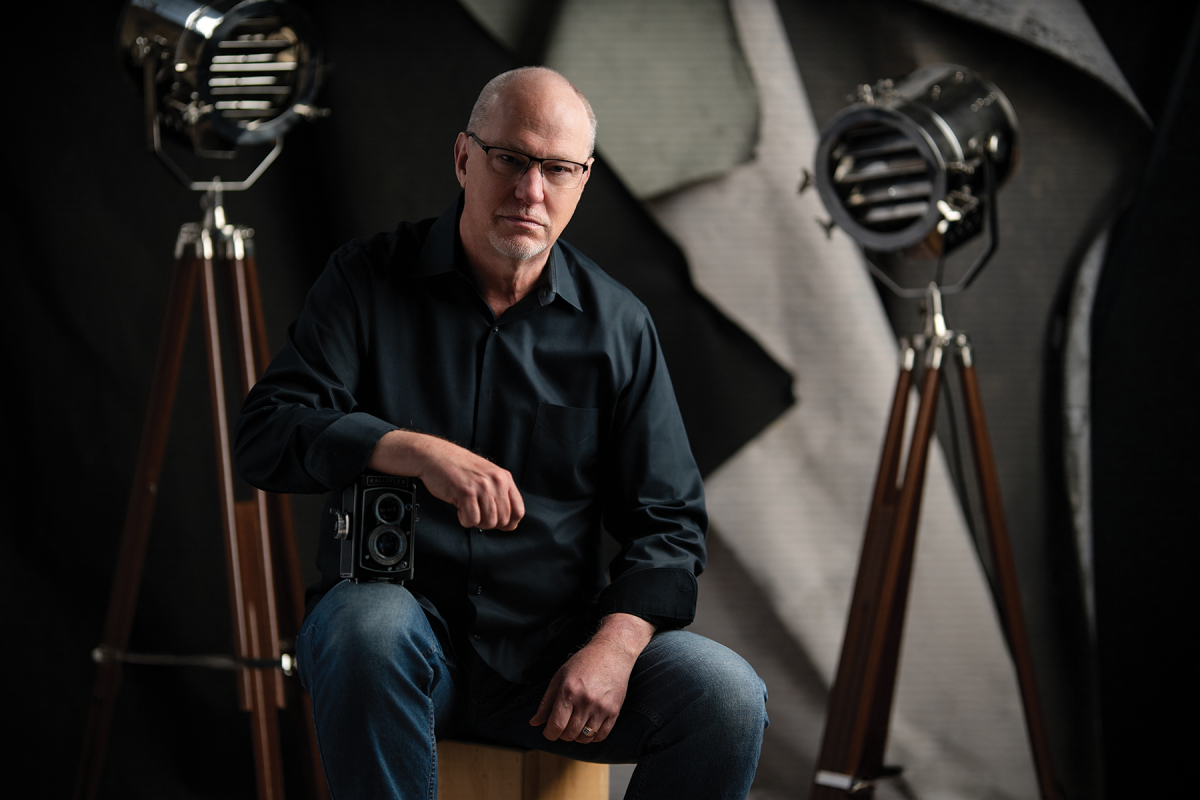From Hockaday classrooms to Capitol Hill’s corridors, Hockaday alumnae are shaping policy and leading with purpose. Their paths began with debate rounds and junior research papers and have led to long nights, fast-paced meetings and active change in Washington D.C.. For Jennifer Dean ‘94, Sophia Friguletto ‘20 and Mary Kate Korinek ‘16, Hockaday’s lessons are more than memories: they are blueprints for their continuing public service.
Jennifer Dean ‘94
Dean’s passion for government policy began in her debate class taught by Nancy Walker. Dean attended Hockaday grades 8 through 12 before attending MIT and later working in various parts of the government.
“I was really involved with debate in high school, and I learned that I loved talking about government and public policy,” Dean said. “I decided that was where I wanted to go, to study both in college and where I wanted my career to go.”
Today, Dean works as the Deputy Chief of Staff for U.S. Senator Kirsten Gillibrand (New York). Previously, she worked locally with the Texas and Ohio governments. She said her jobs in government required her to speak confidently and carry herself well, skills she attributes to Hockaday debate.
“There were definitely a lot of times I was either the youngest in the room or the youngest female in the room,” Dean said. “While I had imposter syndrome at first, I at least could fake it and pretend that I was confident and still do what I needed to do because of what I learned in debate.”
Dean’s typical day consists of meetings and collaboration with the staff. She coordinates with the senator’s state and legislative teams, which include about 70 staffers located in New York and D.C.. Dean also directly oversees the scheduling process, manages all outgoing constituent correspondence and handles a wide range of operational tasks. Throughout her tenure, she has been part of significant legislative changes, moments she remembers vividly and with pride.
In 2022, the PACT Act was passed, a law that significantly expanded healthcare provided by the Veterans Administration, including benefits for veterans who were exposed to burn pits and other toxic materials during their service. Senator Gillibrand’s team, including Dean, worked for over a decade to get the act passed.
“We had been working with a group of veterans,” Dean said. “Getting to talk to them and hear how this was going to make a huge difference in their lives was amazing. That is something that I love to see and get goosebumps when I get to do it every day.”
Working in politics is far from glamorous. In addition to long hours, particularly when campaigning, the job can be mentally taxing.
“You’re almost always going to be on a losing campaign,” Dean said. “You spend weeks and weeks and possibly even years pouring your heart and soul into this campaign. You get the overall verdict that you lose, and that is heartbreaking.”
But this heartbreak is overshadowed by the minute changes Dean makes daily through her job.
“You do it because you love it,” Dean said. “I always tell people: if you’re at a point in your career that you don’t love it, don’t do it anymore.”
Sophia Friguletto ‘20
Friguletto navigates the fast-paced corridors of Capitol Hill as a legislative aide, balancing memo-writing and committee prep while working with other correspondents across multiple issue areas for U.S. Senator Bernie Moreno (Ohio).
Friguletto’s interest in public service is rooted in her family, with three of her grandparents serving as lifelong civil servants.
“My maternal grandfather was an executive branch economist, my maternal grandmother worked at the National Security Agency her entire career and my step-grandfather was in the military and military intelligence,” Friguletto said. “I feel like they all set such great examples of how you can have a long and successful career in government and public service that is just as fulfilling as the private sector.”
After transitioning from a career in tax consulting, Friguletto began her work with Senator Moreno. Writing plays an important role in her current job, which she believes Hockaday greatly helped her with.
“If I had to narrow my Hockaday experience down, it would be ‘writing, writing, writing,’ and relationship building and conversation,” Friguletto said. “Hockaday’s writing program is insanely good, and I use those skills all day every day in writing briefs, memos, legislation and floor comments. Our experiences and expectations [at Hockaday] were worlds away from other writing education.”
Friguletto also believes that the friendships that she built at Hockaday translated into her work today.
“I feel like we had such a rich, academic relationship with our peers, which has made me super comfortable in professional environments, having substantive, interesting conversations,” Friguletto said.
Friguletto’s job differs daily, depending on whether the Senate is in “session,” which refers to senators being in town with official business being conducted. The upside of this is that every day is a new opportunity to learn.
“The continuing education every day is one of the most challenging parts of my day, hearing about something I know nothing about or having to prep the boss or hold your own in the meeting,” Friguletto said. “But that also is the most rewarding part. I don’t think I have grown more than I have in the last nine months intellectually. There’s just a dynamic nature to this job that’s super difficult, but you also feel like you have learned something and contributed.”
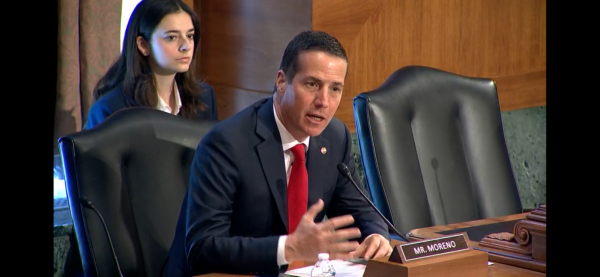
Mary Kate Korinek ‘16
Korinek is the deputy press secretary for U.S. Senator John Cornyn (Texas). Her early exposure to politics and her Hockaday experience influenced her interest in public service.
“Growing up, my family was always interested in politics,” Korinek said. “They instilled in me a strong sense of civic duty and responsibility to serve our community and our nation well.”
As an upperclassman, Korinek took a class taught by former teacher Tracy Walder called “Students in Spycraft: Espionage and Diplomatic Policy.”
“[The class] really inspired me to want to pursue government and public policy in college,” Korinek said. “[Ms. Walder] was just this young sorority girl originally from Southern California who ended up playing such a pivotal role in the takedown of Osama bin Laden and joined the counterterrorism efforts in the post 9/11 world, and it really inspired me to want to pursue a similar career—particularly as another woman looking to make her mark in a historically male-dominated industry.”
Korinek attended the University of Texas at Austin with a double major in Political Communication and Advertising, as well as a minor in Business. She thought she would end up in a typical corporate communication job, but a passion project in her senior year of college introduced a new possibility.
“I ended up volunteering as an intern on a political campaign for a congressional candidate, a young woman, in the formerly 32nd congressional district of Texas,” Korinek said. “I had reached out and sat down with her and was just this big supporter of what she stood for and was really excited to have the opportunity to work on her campaign.”
As an intern, Korinek handled social media and digital work. Later that summer, she joined the campaign full-time.
“That was absolutely when I fell in love with the world of politics,” Korinek said. “Without a shadow of a doubt, that’s what I wanted to do with my life. It was the most incredible, rewarding and life-changing experience.”
Hockaday’s mission had a greater impact on Korinek after she graduated.
“Hockaday’s mission is to develop resilient, confident women who are inspired to lead lives of purpose and impact, and that mission statement really resonated with me,” Korinek said. “I think that’s something that I absolutely carry into my job now and a big part of why I chose to pursue a career in government and politics was because I did feel called to lead a life of purpose and impact.”
Korinek credits securing her current job as the perfect mix of right timing and right opportunity. After moving to D.C. last July, Korinek’s typical day is at the mercy of the news cycle.
“No two days are the same,” Korinek said. “You never know when breaking news is coming. I’m usually in the office every weekday, sometimes doing press releases or statements, helping book [Senator Cornyn] for different radio hits and TV hits or working with reporter relations. It keeps you on your feet. It’s challenging and dynamic, and you are never bored.”
Millions of Texans rely on Korinek and her team, and she takes that job very seriously.
“The most rewarding part of my job is serving 31 million Texans, hopefully trying to move the needle ever so slightly to make their lives just a little better,” Korinek said. “Playing a very small role in that is incredibly humbling and also very rewarding and meaningful.”
Although her job comes with its many upsides, it can be difficult to see immediate change with the drawn-out processes of the federal government.
“The most challenging part is that things at the federal level move slowly, and you do not always see the instant gratification of those changes,” Korinek said. “The challenge is being patient and knowing that there are ultimately a lot of small actions that will hopefully have a long-term impact.”
Any representative role can be emotionally demanding when addressing sensitive issues in the community. For Korinek, this is a motivating factor in her life.
“There’s definitely emotion that is involved, and I think that can wear on you,” Korinek said. “I also think you should lean into it, because that is what should drive you, and it shows your humanity and what connects and unifies us as the American people. I want to deliver for those Texans and these people who feel so emotional about it.”
Korinek believes that true action can and should come from the people of Texas as policymakers act on what the people testify to.
“There are so many opportunities for you to get involved, to make your voice heard,” Korinek said. “You have the power to use your voice at the ballot box, and that is really where change happens—from the bottom up.”

Paths into public service
Dean, Friguletto and Korinek all had the same advice on how to get involved in public service: “Just ask.”
Dean emphasizes the importance of asking the right person.
“Do some volunteer work for a candidate or campaign that you really care about,” Dean said. “You are smart, you are committed, you are passionate. Those are the kind of people we need more of working in government, working in policy and working in campaigns.”
Friguletto stressed how important it is to just get your foot in the door and work your way up from there.
“Be willing to do any job at the onset,” Friguletto said. “A lot of the folks I know here started off answering mail, answering phones or getting coffee.”
Korinek said to meet and talk to as many people as possible.
“The number one thing I did was get coffee with anyone and everyone who would say yes, even if they weren’t offering me a job or had no opportunities in front of them,” Korinek said. “I wanted to hear more about their experience and what they did to get to where they are. The more that you can build your network and hear from other people and what their experiences are the better.”


